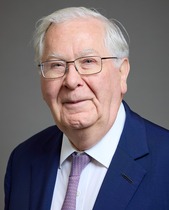
Radical Uncertainty
The limits of certainty demonstrate the power of human judgment over artificial intelligence. In most critical decisions there can be no forecasts or probability distributions on which we might sensibly rely. Instead of inventing numbers to fill the gaps in our knowledge, we should adopt business, political, and personal strategies that will be robust to alternative futures and resilient to unpredictable events. Within the security of such a robust and resilient reference narrative, uncertainty can be embraced, because it is the source of creativity, excitement, and profit.
Praise for Radical Uncertainty
“An elegant and careful guide to thinking about personal and social economics, especially in a time of uncertainty. The timing is impeccable.”
— Christine Kenneally, New York Times Book Review
“Rarely is a book’s publication as well-timed as John Kay and Mervyn King’s Radical Uncertainty: Decision-Making Beyond the Numbers.”
— Joseph C. Sternberg, Wall Street Journal
“In this profound yet practical book, Kay and King admit the obvious―that in crucial domains, we do not, will not, cannot know what is going on―and show, nevertheless, how to retain the ability to function.”
— Paul Romer, Nobel laureate
“Many books will make the reader better informed or smarter. This is one of very few that will make a reader much wiser. You will live differently and better after you grasp Kay and King’s seminal lessons about radical uncertainty.”
— Lawrence H. Summers, US Treasury Secretary 1999-2001, and Charles W. Eliot University Professor at Harvard University
“John Kay and Mervyn King want more people to grasp the old distinction between risk and uncertainty forgotten by a later generation of economists. Too many of life’s uncertainties are presented to us as if they are calculable risks, especially in the realm of finance. We should focus on the truly calculable risks, they argue, and stop pretending we can predict situations of radical uncertainty.”
— Niall Ferguson, Milbank Family Senior Fellow, the Hoover Institution, Stanford

